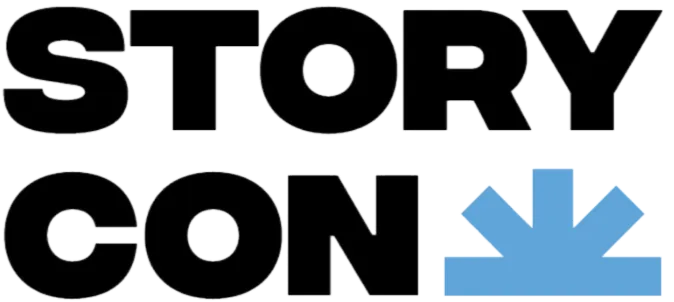
Synthesis
Synthesis offers a unique approach to education that has generated enthusiastic feedback from many families while raising questions for others. Born from Elon Musk's educational experiment, this program emphasizes collaborative problem-solving through gamified learning rather than traditional subject instruction.
What Parents Love About Synthesis
The program's ability to deeply engage children stands out as its most praised quality. Parents repeatedly mention how Synthesis captures their children's attention in ways traditional classes often fail to do:
"It's been incredible to see her gain confidence in speaking up and working together with others to solve problems... she finishes with a big smile on her face." A Healthy Slice of Life blog
Parents particularly value the development of soft skills that are difficult to teach in conventional settings. The program's emphasis on teamwork, strategic thinking, and resilience translates into real-world abilities:
"In Synthesis my sons are practicing listening to all members... synthesizing information into new knowledge, and learning to stay ahead of changes in the world." Penelope Guzman, Penelope's Oasis
The intrinsic motivation Synthesis fosters impresses many parents who are accustomed to reminding children about educational tasks. Several note that their children look forward to sessions and need no prompting to participate:
"The Synthesis approach draws children to it. They never need to be reminded to do Synthesis... Children willingly come back for more." Parent testimonial via Synthesis
For AI Tutor users, parents appreciate how the math component transforms a traditionally challenging subject into something children actively want to do:
"My 7-year-old could spend two hours on Synthesis if allowed and no longer feels intimidated by making a mistake." Parent testimonial via Synthesis
Common Concerns and Criticisms
While many families report positive experiences, others question whether Synthesis delivers sufficient value for its cost. At $95 per month for the team program, it represents a significant investment:
"I don't see the value. Sure, the kids enjoy it, but they also enjoy playing Among Us or any other games." Garble blog review
Some parents express concern about the program's limited academic scope, noting that while it excels at teaching collaboration and problem-solving, it shouldn't be mistaken for comprehensive education:
"It's not a 'school' in any reasonable sense." Garble blog review
The intentionally chaotic and minimally guided nature of sessions can be challenging for some children, particularly younger ones who may need more structure:
"Embracing chaos is one thing, leaving a bunch of 8-11 year olds to their own devices is another." Garble blog review
Early users reported administrative difficulties with subscription management and cancellation, though the company has since improved these systems. Some families also found that scheduling weekly sessions at fixed times posed logistical challenges.
Which Children Thrive in Synthesis?
Parent feedback suggests Synthesis works particularly well for:
- Children who enjoy competition and strategy games
- Students who benefit from learning social skills in a structured but playful environment
- Kids who are intrinsically motivated by puzzles and problem-solving
- Learners who may be disengaged by traditional academic approaches
- Children with STEM interests who enjoy logic challenges
The program may be less suitable for:
- Children who strongly prefer clear structure and explicit instructions
- Students with significant attention challenges who struggle with open-ended activities
- Families seeking comprehensive academic instruction rather than enrichment
- Children who are sensitive to competitive environments
The Bottom Line
Synthesis represents an innovative approach to developing collaboration and complex problem-solving skills. Most parents view it as a valuable enrichment program rather than a standalone curriculum, with its greatest strength being its ability to engage children in developing future-ready skills that traditional education often overlooks.
Those considering Synthesis should weigh its premium price against the specialized skills it develops. For many families, the program's unique approach to fostering teamwork, strategic thinking, and resilience makes it a worthwhile investment, while others may find similar benefits through other enrichment activities at a lower cost.
As one parent aptly summarized, Synthesis offers "a great concept, but still a work in progress" - an exciting educational innovation that continues to evolve based on user feedback.
Subjects covered
Core subjects: Interdisciplinary problem-solving, collaboration, critical thinking
Unique offerings: Gamified simulations, case studies, strategy games, and design projects
Math focus: AI Tutor for personalized math skill development
Special emphasis: Ethical decision-making, teamwork, and resilience through experiential learning
Teaching Format
Online delivery: Weekly live online classes conducted via video conference (Zoom) with a trained facilitator
Interactive gameplay: Students engage in multiplayer games and simulations, learning through active participation
Collaborative structure: Students work in teams, fostering communication and teamwork skills
Assessment approach: No traditional grades; success is measured through qualitative feedback and group discussions
Session format: Each session includes exploration, gameplay, and a debrief discussion to analyze outcomes and strategies
Implementation flexibility: Designed for ages 6-14, with cohorts mixing different ages; sessions can be scheduled at various times to accommodate different time zones
Supplementary tools: AI Tutor available for personalized math practice outside of live sessions
Pricing
Synthesis Teams (Group Program): Approximately $95 per month for a membership
AI Tutor (Math App): Approximately $25–$30 per month (less than $1/day)
Subscription Details: Monthly billing with the option to cancel or pause anytime without long-term commitment
Cost-saving options: Plans to offer need-based pricing or scholarships in the future; current model serves those who can afford premium pricing
Parent Involvement
Low involvement required
Daily responsibilities: Minimal; parents are encouraged to let kids work independently during sessions
Preparation needed: Basic logistics like scheduling and ensuring a quiet environment for sessions
Teaching requirements: None; facilitators lead the sessions and provide guidance
Assessment duties: Limited; parents receive feedback reports but do not assess learning themselves
Parent role: Primarily supportive, with a focus on encouragement and scheduling rather than direct involvement in teaching
.webp)


